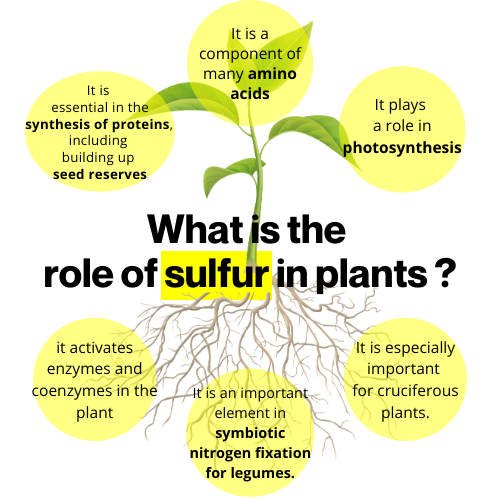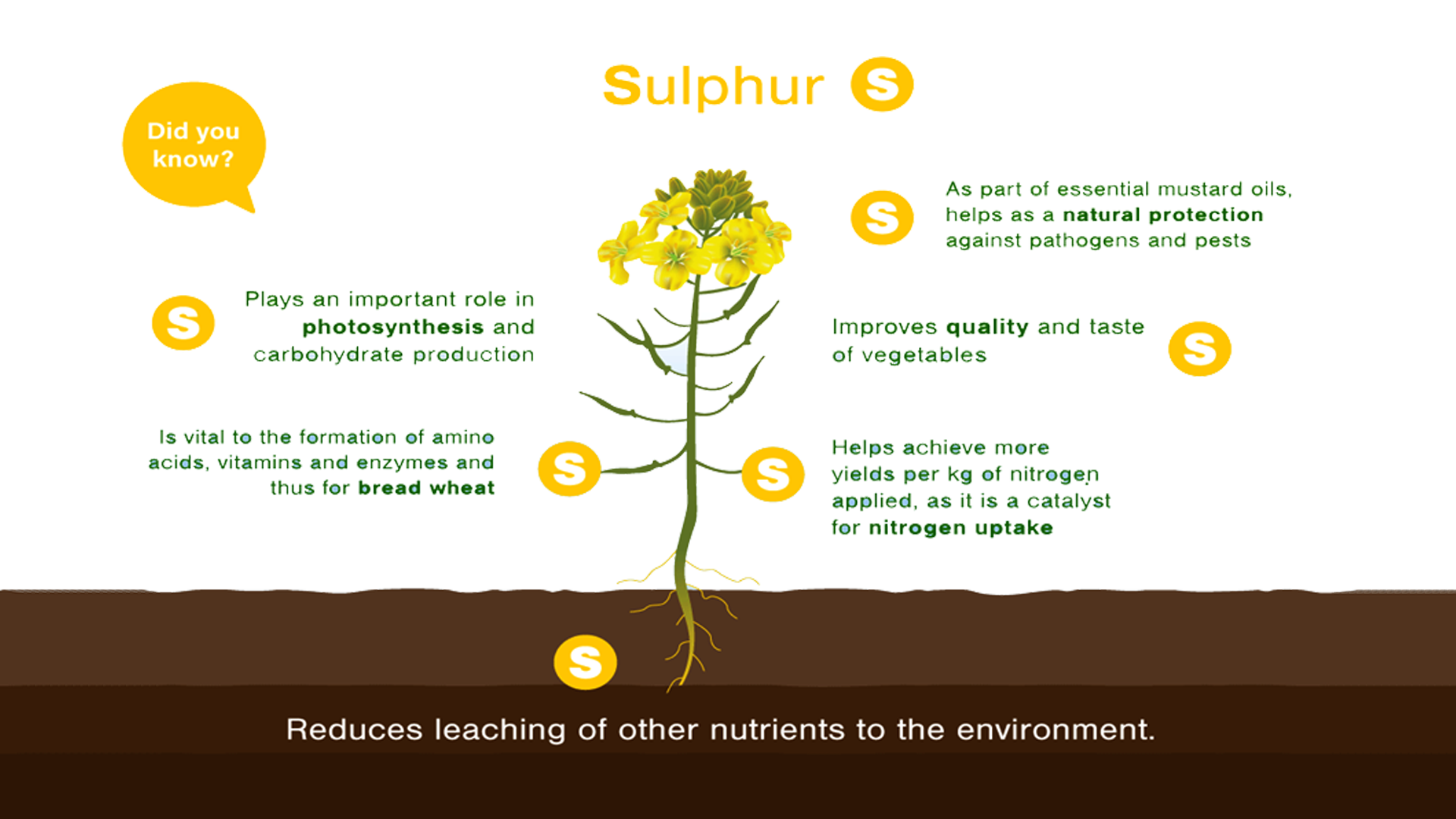WHAT IS THE ROLE OF SULPHUR IN PLANT GROWTH
SULPHUR IS ONE OF THE 17 ESSENTIAL PLANT NUTRIENTS. IT IS ESSENTIAL FOR THE GROWTH AND DEVELOPMENT OF ALL CROPS, WITHOUT EXCEPTION.
01
Sulphur is a constituent of three S-containing amino acids
- Sulphur is a constituent of three S-containing amino acids (cysteine, cystine and methionine), which are the building blocks of protein. About 90% of plant S is present in these amino acids which increases oil percentage in oilseed & pungency in onion & garlic and improves the quality of vegetables.
02
Sulphur is a component of several enzymes
- Sulphur is a component of several enzymes that are involved in a variety of metabolic pathways. These enzymes are responsible for catalyzing chemical reactions that are essential for plant growth.
03
Sulphur is a component of chlorophyll
- Sulphur is also a component of chlorophyll, the green pigment that plants use to capture sunlight for photosynthesis, through which plants produce starch, sugars, oils, fats, vitamins and other compounds.
04
Sulphur is involved in the synthesis of oils
- Sulphur is also involved in the synthesis of oils, which are used to make cell membranes and other important compounds, crucial for oilseeds.
05
Increases crop yields and improves produce quality
- Increases crop yields and improves produce quality, both of which determine the market price a farmer would get for his produce.
06
Improves protein and oil percentage in seeds
- With reference to crop quality, S improves protein and oil percentage in seeds, cereal quality for milling and baking, marketability of dry coconut kernel (copra), quality of tobacco, nutritive value of forages, etc.
07
Associated with special metabolisms in plants
- It is associated with special metabolisms in plants and the structural characteristics of protoplasm.
08
Helps in increasing root nodules
- Helps in increasing root nodules of the legume crop and helps in Nitrogen fixation from atmosphere.



